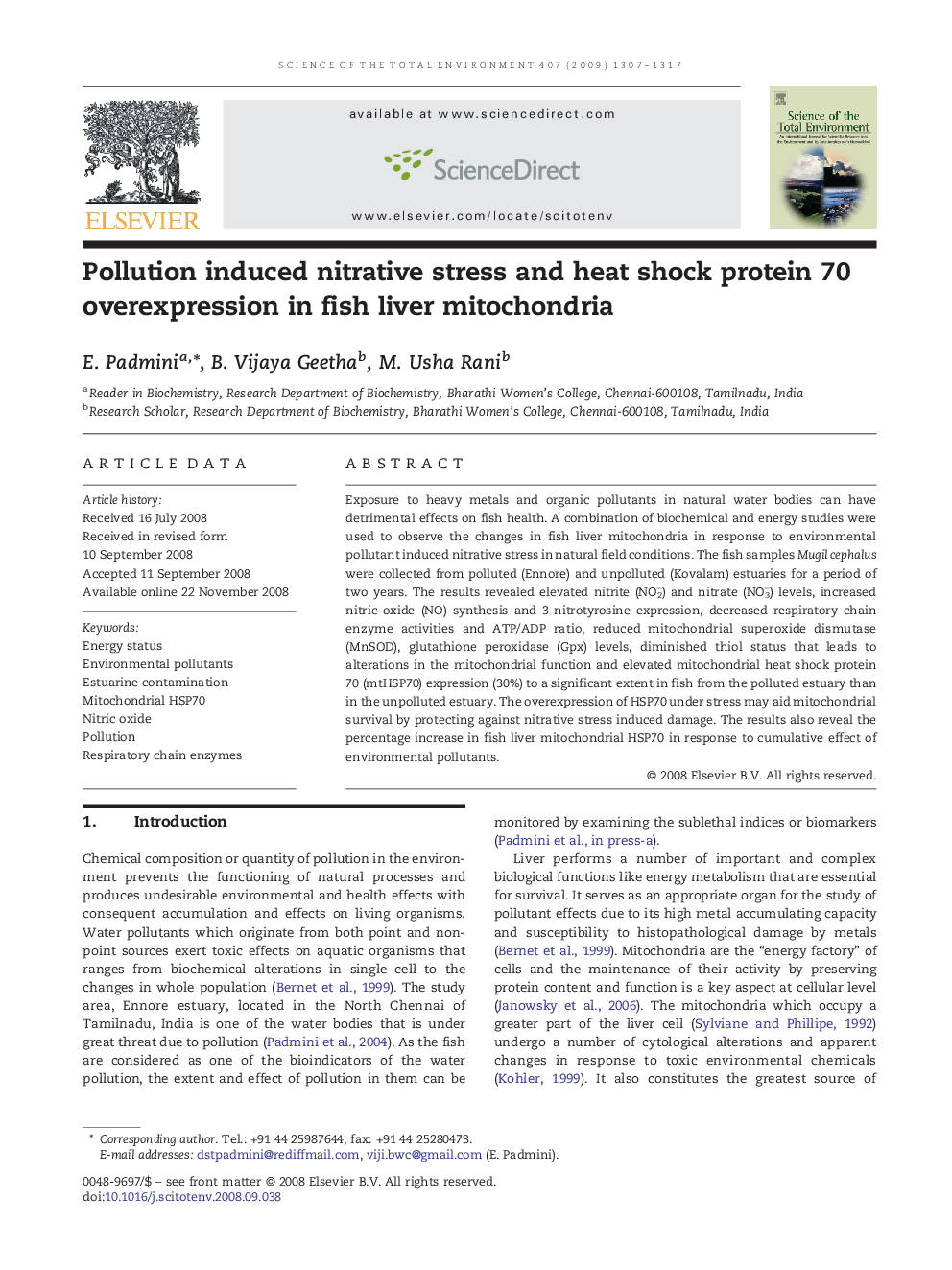| Article ID | Journal | Published Year | Pages | File Type |
|---|---|---|---|---|
| 4432411 | Science of The Total Environment | 2009 | 11 Pages |
Exposure to heavy metals and organic pollutants in natural water bodies can have detrimental effects on fish health. A combination of biochemical and energy studies were used to observe the changes in fish liver mitochondria in response to environmental pollutant induced nitrative stress in natural field conditions. The fish samples Mugil cephalus were collected from polluted (Ennore) and unpolluted (Kovalam) estuaries for a period of two years. The results revealed elevated nitrite (NO2−) and nitrate (NO3−) levels, increased nitric oxide (NO) synthesis and 3-nitrotyrosine expression, decreased respiratory chain enzyme activities and ATP/ADP ratio, reduced mitochondrial superoxide dismutase (MnSOD), glutathione peroxidase (Gpx) levels, diminished thiol status that leads to alterations in the mitochondrial function and elevated mitochondrial heat shock protein 70 (mtHSP70) expression (30%) to a significant extent in fish from the polluted estuary than in the unpolluted estuary. The overexpression of HSP70 under stress may aid mitochondrial survival by protecting against nitrative stress induced damage. The results also reveal the percentage increase in fish liver mitochondrial HSP70 in response to cumulative effect of environmental pollutants.
